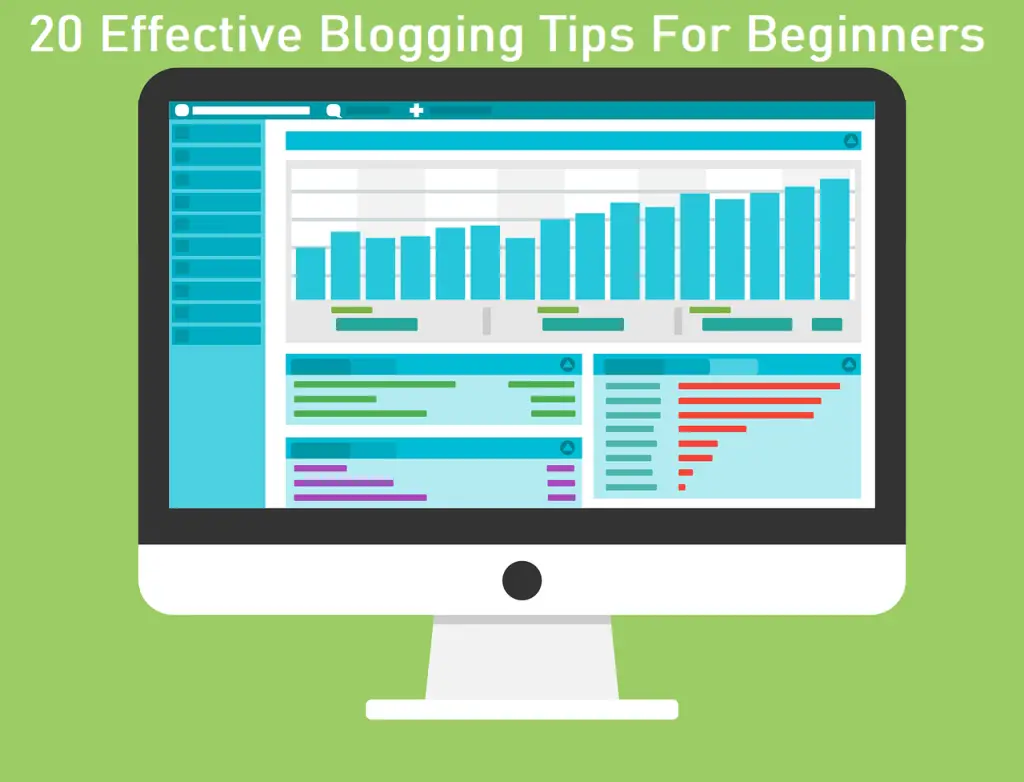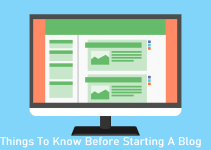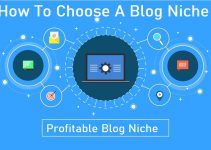20 Effective Blogging Tips For Beginners (Newbie Bloggers). Here are very important tips you should know when starting your blogging career as a new blogger.

One of the key benefits of blogging is its accessibility. Starting a blog is relatively easy and doesn’t require extensive technical knowledge. Many blogging platforms offer user-friendly interfaces and pre-designed templates, making it simple to create and customize your blog.
Why should you consider starting a blog? Here are some compelling reasons:
- Sharing Your Passion: Blogging allows you to share your passion for a particular subject with a larger audience. It provides an outlet for expressing your thoughts, insights, and expertise in a structured and organized manner.
- Building an Online Presence: Having a blog helps you establish an online presence and personal brand. It serves as a platform to showcase your skills, knowledge, and experience, which can be beneficial for personal and professional growth.
- Connecting with Like-Minded Individuals: Blogging allows you to connect with others who share similar interests. Through comments, social media interactions, and networking with other bloggers, you can build relationships, exchange ideas, and engage in meaningful discussions.
- Creating Opportunities: A successful blog can open doors to various opportunities. It can attract attention from potential clients, customers, or employers who value your expertise. It can also lead to speaking engagements, collaborations, partnerships, or even monetization through advertisements, sponsored content, or product sales.
- Improving Writing and Communication Skills: Blogging provides an excellent platform for honing your writing and communication skills. Regularly writing blog posts helps you practice articulating your thoughts and ideas effectively, enhancing your ability to communicate with clarity and precision.
When starting a blog, it’s essential to consider the following steps:
- Choose a Niche: Determine the specific topic or niche you want to focus on for your blog. Select a niche that you are passionate about and have sufficient knowledge and expertise to provide valuable content to your audience.
- Select a Blogging Platform: Choose a reliable and user-friendly blogging platform that suits your needs. Popular options include WordPress, Blogger, and Wix. Research their features, customization options, and ease of use before making a decision.
- Create Engaging Content: Develop a content strategy and plan for your blog. Research your target audience’s interests, pain points, and preferences to create valuable and engaging content. Be consistent in publishing new blog posts to keep your audience engaged and coming back for more.
- Promote Your Blog: Utilize social media platforms, email marketing, and search engine optimization (SEO) techniques to promote your blog and drive traffic. Engage with your audience, respond to comments, and actively participate in relevant communities and forums.
- Interact and Collaborate: Engage with your readers by encouraging comments, feedback, and discussions on your blog posts. Collaborate with other bloggers, participate in guest posting opportunities, and build relationships within your blogging community.
Remember, building a successful blog takes time, effort, and dedication. Consistency, quality content, and audience engagement are key factors in growing your blog’s reach and impact. Enjoy the process, be patient, and continuously learn and improve as you embark on your blogging journey.
Read Also: How To Increase Blog Traffic Fast for Free: 20 Proven Ways
20 Effective Blogging Tips For Beginners (Newbie Bloggers)
- Define Your Blog’s Purpose:
Before you start blogging, define the purpose of your blog. Determine the topics you want to cover and the audience you want to target. Having a clear direction will help you create focused and engaging content that resonates with your readers.
- Choose a Reliable Blogging Platform:
Select a reliable and user-friendly blogging platform that suits your needs. Popular options include WordPress, Blogger, and Wix. Explore their features, themes, and customization options to find the platform that aligns with your vision for your blog.
- Invest in a Professional Blog Design:
A visually appealing blog design enhances your brand and attracts readers. Invest in a professional theme or hire a web designer to create a customized look for your blog. Aim for a clean and easy-to-navigate layout that offers a seamless user experience.
- Craft Compelling Blog Post Titles:
Your blog post titles should grab attention and entice readers to click and read further. Use keywords and descriptive language to create catchy and compelling titles that accurately reflect the content of your posts.
- Write Engaging and Valuable Content:
Focus on creating high-quality content that provides value to your readers. Offer unique perspectives, practical tips, and in-depth information. Write in a conversational tone and make your content easy to understand and digest.
- Utilize Search Engine Optimization (SEO) Techniques:
Learn about SEO techniques to improve your blog’s visibility in search engine results. Research and use relevant keywords, optimize your meta descriptions, and structure your content with headings and subheadings. This will help search engines understand your content and rank it higher in relevant searches.
- Promote Your Blog on Social Media:
Leverage the power of social media platforms to expand your blog’s reach. Create profiles on platforms such as Facebook, Instagram, Twitter, and Pinterest. Share your blog posts, engage with your audience, and join relevant communities to attract new readers.
- Interact with Your Readers:
Encourage reader engagement by responding to comments, emails, and social media messages. Foster a sense of community by valuing and appreciating your readers’ input. Engaging with your audience helps build relationships and loyalty.
- Network with Other Bloggers:
Connect with fellow bloggers in your niche. Leave thoughtful comments on their posts, collaborate on projects, and participate in blogging communities. Networking with other bloggers opens up opportunities for guest posting, collaborations, and knowledge sharing.
- Create a Consistent Posting Schedule:
Establish a regular posting schedule to keep your readers engaged. Consistency builds trust and loyalty among your audience. Determine a frequency that works for you, whether it’s daily, weekly, or monthly, and stick to it.
- Include Eye-Catching Visuals:
Incorporate relevant and visually appealing images, infographics, and videos in your blog posts. Visual content enhances the overall reading experience and makes your blog more shareable on social media.
- Use Internal and External Links:
Include internal links to direct readers to other relevant posts within your blog. This improves user experience and keeps readers on your site for longer. Additionally, include external links to reputable sources that support your content. This helps establish credibility and enhances your blog’s authority.
- Guest Post on Other Blogs:
Reach out to established blogs in your niche and offer to write guest posts. Guest blogging exposes your blog to a new audience and helps build backlinks to your site. It also establishes your expertise in your niche.
- Offer a Newsletter or Email Subscription:
Provide your readers with the option to subscribe to your newsletter or receive email updates. This allows you to establish a direct line of communication with your audience and keep them informed about your latest blog posts, exclusive content, promotions, or upcoming events. Offering a newsletter not only helps you build a loyal community of readers but also allows you to nurture relationships and drive repeat traffic to your blog. Make sure to create compelling opt-in incentives and deliver valuable content to keep your subscribers engaged and excited about your blog.
- Optimize Your Blog for Mobile Devices:
With the increasing use of smartphones and tablets, it’s crucial to ensure your blog is mobile-friendly. Choose a responsive theme that adapts to different screen sizes and test your blog’s functionality on various devices to provide a seamless experience for mobile users.
- Encourage Reader Interaction:
Prompt your readers to engage with your content by including calls-to-action (CTAs) at the end of your blog posts. Encourage them to leave comments, share their opinions, or ask questions. Respond to their comments and foster a sense of community on your blog.
- Monitor Your Blog’s Analytics:
Use tools like Google Analytics to track your blog’s performance. Analyze key metrics such as page views, bounce rate, and audience demographics to gain insights into your readers’ behavior. This data can help you make informed decisions to improve your blog’s content and user experience.
- Collaborate with Influencers:
Partner with influencers in your niche to expand your reach and attract new readers. Collaborate on content, cross-promote each other’s blogs, or invite influencers to contribute guest posts. Their endorsement can bring credibility to your blog and attract their followers to your content.
- Stay Consistent and Patient:
Building a successful blog takes time and persistence. Stay consistent with your posting schedule, content quality, and promotional efforts. Don’t get discouraged if you don’t see immediate results. Keep learning, adapting, and refining your strategies as you grow your blog.
- Learn from Your Audience:
Pay attention to your readers’ feedback and preferences. Monitor the comments, emails, and social media interactions to understand what resonates with your audience. Use this information to tailor your content, address their needs, and provide solutions to their problems.
By following these effective blogging tips, you can establish a strong foundation for your blog and set yourself up for long-term success. Remember, blogging is a journey of continuous learning and improvement, so stay dedicated, stay passionate, and enjoy the process of sharing your knowledge and connecting with your audience.
FAQs Regarding Blogging Tips For Beginners
Here are 5 frequently asked questions (FAQs) about blogging:
Q: How do I choose the right blogging platform?
A: Choosing the right blogging platform depends on your specific needs and preferences. Consider factors such as ease of use, customization options, available themes, and scalability. Popular options include WordPress, Blogger, and Wix. Evaluate their features and compare them to find the platform that aligns with your goals and technical proficiency.
Q: How often should I publish new blog posts?
A: The frequency of publishing new blog posts depends on your availability, content creation process, and audience expectations. Consistency is key, so aim for a schedule that you can realistically maintain. Whether it’s once a week, twice a month, or even once a month, the key is to deliver high-quality content consistently rather than overwhelming yourself with unrealistic deadlines.
Q: How can I drive traffic to my blog?
A: There are several effective strategies to drive traffic to your blog. Focus on search engine optimization (SEO) techniques to improve your visibility in search results. Promote your blog on social media platforms to reach a wider audience. Engage with other bloggers and participate in blogging communities to expand your network. Utilize guest posting opportunities and collaborate with influencers to tap into their audience. Finally, create valuable and shareable content that resonates with your target audience.
Q: Can I make money from blogging?
A: Yes, it’s possible to monetize your blog through various methods. You can display ads on your blog through ad networks like Google AdSense or work directly with brands for sponsored content. Affiliate marketing allows you to earn a commission by promoting products or services. Additionally, you can create and sell digital products, offer consulting services, or generate revenue through online courses or memberships. However, monetizing a blog requires consistent effort, building an audience, and providing value to your readers.
Q: How can I grow my blog’s audience and engagement?
A: Growing your blog’s audience and engagement requires a multi-faceted approach. Focus on producing high-quality content that is valuable and relevant to your target audience. Promote your blog through social media, email newsletters, and collaborations with other bloggers. Engage with your readers by responding to comments, encouraging discussions, and creating opportunities for interaction. Utilize SEO techniques to improve your visibility in search engine results. Building relationships with your audience takes time, so stay consistent, provide value, and foster a sense of community on your blog.


